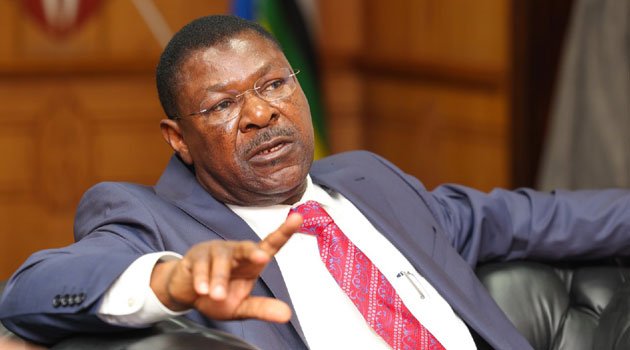Kenya’s Parliament faces another high-stakes clash over devolved funds after the Senate approved a Sh405 billion allocation to counties, directly challenging the National Assembly’s earlier decision for the same amount in the upcoming 2023/26 financial year.
While the figures appear identical, a critical dispute over what constitutes the equitable share of national revenue threatens vital services in the 47 counties.
The core disagreement: The National Assembly, led by Speaker Moses Wetang’ula, insists its approved Sh405 billion represents 25.8% of the audited national revenue from 2020/21. Wetang’ula defended this allocation, citing Article 217 of the Constitution and the need for fiscal consolidation.
He argued it balances reducing Kenya’s budget deficit (targeting 4.3% of GDP), slowing public debt growth, and achieving sustainability amidst global economic headwinds like supply chain disruptions and volatile exchange rates.
However, the Senate contends this amount falls short of the true equitable share counties are constitutionally entitled to. They argue the National Assembly’s calculation base (2020/21 revenue) is outdated and doesn’t reflect current needs or the actual revenue collected more recently.
With both Houses passing conflicting positions on the Division of Revenue Allocation Bill 2025, a formal mediation process is now inevitable under parliamentary rules. Failure to resolve this “perennial battle” risks delays in disbursing funds, severely impacting essential services such as healthcare, water, and local infrastructure delivered by county governments.
Senators highlighted deeper systemic issues beyond the headline figure:
County revenue mismanagement: Senate Majority Leader Aaron Cheruiyot sounded the alarm, revealing that 34 counties spend over 50% of their shareable revenue on recurrent costs (like salaries), violating the law requiring at least 25% for development.
“It makes no sense to allocate billions while 95% ends up paying salaries… excluding millions of citizens from development,” he stated.
Stalled projects & unfulfilled promises: Senate Finance Committee Vice Chair Tabitha Mutinda cited the County Aggregation and Industrial Parks program, where funding delays persist despite projects being awarded. She also highlighted the paralyzed Community Health Promoters program in Nairobi, where the county government has withheld its share of the budget despite national government funding being released.
Call for fairness: Senator Boni Khalwale advocated for increased county allocation, arguing the national government’s massive Sh27 trillion budget for recurrent and development spending necessitates a more balanced distribution to allow both levels of government to function effectively. “The money must be distributed equitably,” he emphasised.
Wetang’ula referenced Articles 218(2)(b) and 203(1), stressing that revenue division must consider national interest, public debt, national obligations, and the needs of disadvantaged groups and areas. The Senate’s position implies they believe the National Assembly’s Sh405 billion fails this constitutional test based on current realities.
The imminent mediation talks carry immense weight. Finding common ground is crucial to prevent financial paralysis in the counties and ensure Kenya’s devolution system delivers on its promise of equitable development and improved local services. The standoff underscores persistent tensions over fiscal autonomy and accountability within Kenya’s governance structure.
– By Nusurah Nuhu


